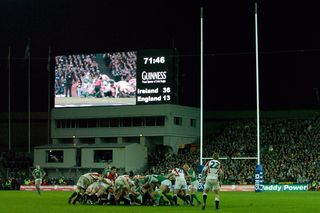NCT should not be taken as gospel, says leading car assessor
A National Car Test centre
NCT tests are the bare minimum check of roadworthiness and shouldn’t be taken as gospel, a leading car safety assessor has warned after an RTE expose revealed disturbing flaws in the State car testing system.
Cars passing the National Car Test (NCT), which should have failed, dangerously corroded bodies and concerns over the effectiveness of tests on shock absorbers were among the issues raised in “Testing the Limits” a documentary by the RTE Investigations Unit which aired on Prime Time tonight.
“I think it’s a wake-up call,” Liam Cotter, consulting motor engineer assessor told the Irish Independent.
The programme revealed that a 17-year-old car driven by Amanda O’Flaherty that suddenly went out of control before crashing into an oncoming car killing the 26-year-old novice driver, had passed an NCT test seven months before the accident in 2012.
Yet during an inquest into the Cork woman’s death, a Garda vehicle inspector stated the car was “not in a roadworthy condition prior to the collision” because the two rear shock absorbers “were leaking an excessive amount of oil.” The result was the car was “very unstable before and during cornering.”
The tragic accident highlighted what Paul Young, a lecturer at DCU’s Department of Mechanical Engineering, claimed is a flaw in the current testing procedures used by the NCT to test a car’s suspension which he said is “not actually testing for the performance of the shock absorber itself.”
The programme also revealed that some cars that are badly rusted or corroded are still passing an NCT, which Moyagh Murdoch, chief executive of the Road Safety Authority (RSA) which is responsible for the tests, admitted could be done:
“If it is not visible to the inspector or if it has been covered up with a good underbody sealant you will be able to cheat the NCT,” she said.
“We are not permitted to damage the car during an NCT and unfortunately people will try and mask corrosion with a very good polish up and isopon,” she said. “It is an area of concern.”
The programme also highlighted “considerable inconsistencies between some of the 47 test centres around Ireland, where pass rates can differ dramatically from centre to centre.”
It cited examples in which a pre-NCT test revealed concerns over a car’s braking and suspension systems and a missing wing mirror, yet these were not picked up in the test.
In another case, a car with oil leaks, corroded brake lines and a badly repaired chassis passed the test.
Mr Cotter said the flaws revealed in the programme should drive home the message that NCT tests are “a bare minimum legal requirement” and “isn’t a snapshot of how good a car is.”
“It just says it’s legally sound and is not a replacement for normal servicing.
RSA spokesman Brian Farrell agreed that the NCT is not a substitute for proper maintenance.
But he insisted the NCT is “completely reliable.”
“The NCT test in every country in Europe is governed by the same EU Directive. The NCT in Ireland complies one hundred per cent with every requirement of the EU Directive. But in addition, the NCT in Ireland goes above and beyond the requirements of the Directive and is internationally recognised as one of the best tests – if not the best – in Europe,” he said.
He added the RSA is “satisfied that Amanda O’Flaherty’s car was tested correctly at the NCT seven months previously, that the results of the test were unremarkable and would not have given an NCT inspector any cause for alarm. “
Join the Irish Independent WhatsApp channel
Stay up to date with all the latest news














